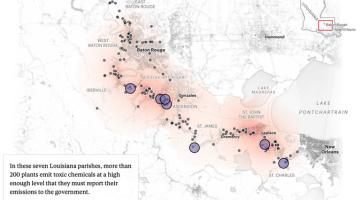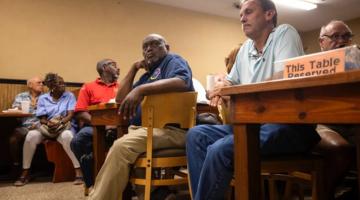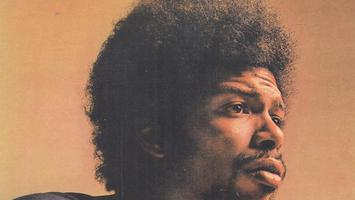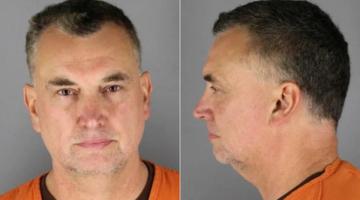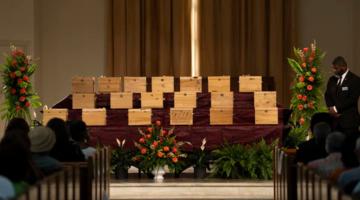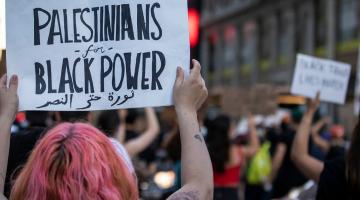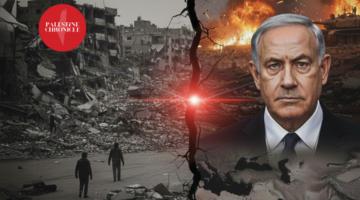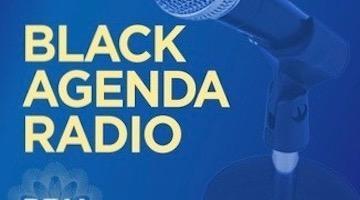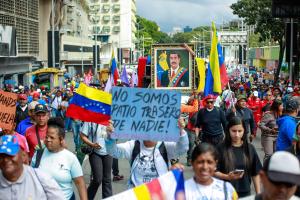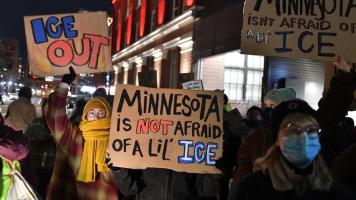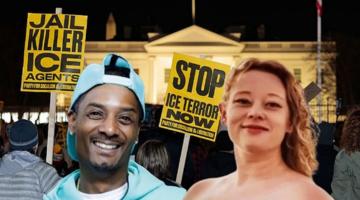Common Ground Founders Sharon Johnson and Malik Rahim, and Occidental College Professor Dr. Caroline Heldman
In “A Southern Panther,” movement elder Malik Rahim talks about his lifetime of battling racism and fighting for peace and environmental justice.
Former Louisiana Panther Malik Rahim first came to national and international attention in the wake of Hurricane Katrina and the flooding of New Orleans. “This is criminal” is his harrowing account of how mostly poor Black people struggled without water, electricity, food, or sanitation, many trapped in the upper floors of flooded buildings waiting for rescue if they hadn’t drowned. Mary Ratcliff, Editor of the San Francisco Bay View Newspaper, managed to reach Rahim on the phone two days after the flood and transcribed it. “There are gangs of white vigilantes near here riding around in pickup trucks, all of them armed,” he said, “and any young Black they see who they figure doesn't belong in their community, they shoot him.”
He also said that most of those struggling during and after the flood had already lost touch with the only community they'd ever known, the only place where they knew everybody, when the Hope VI program, initiated in the early 1990s, demolished public housing units, scattering residents and making way for gentrification.
Shortly after the publication of “This is criminal,” Amy Goodman and Democracy Now! arrived for one of a series of interviews with Rahim between 2006 and 2015.
From Vietnam to the Panthers, Katrina and Common Ground
“A Southern Panther: Conversations with Malik Rahim,” a new book from AK Press, is one of their “Legacy Left” series interviewing movement elders about the lessons they want to share with the generations that follow. It’s a collection of interviews conducted primarily by its editor, author, activist and college lecturer James R. Tracy, but also by Malik Ismail of “The Vanguard Show,” a Black Power Media podcast, Jessica Gingrich of the “Many Roads to Here” podcast, and Mansa Musa of “Rattling the Bars” on The Real News Network.
The book begins with Rahim’s rendition of a Malian proverb: “We have a saying in my community that when an elder makes his transition without passing down his life experiences to the next generation, a library has just been burned. I truly believe that those who have lived their lives for peace and environmental justice have a responsibility to make sure that their libraries don’t turn to ashes.”
Rahim traces his family history in New Orleans’ Algiers neighborhood, once known as Freetown, back to a community of Garveyites and Maroons. His own political engagement began during his service in Vietnam, when he realized that he was fighting other people of color dehumanized like Black Americans and universally referred to as “gooks” within the US military. His growing political consciousness earned him a discharge.
He first came into contact with the Black Panther Party in Los Angeles and later became a founding member of the New Orleans chapter, which, like other Panther chapters, organized free breakfasts, literacy classes, containment of the drug trade in public housing, and collective self-defense.
On September 25, 1970, New Orleans and Louisiana State Police famously forced a showdown and exchange of fire with the Panthers headquartered in the Desire Housing Project. “When we had our shootout,” says Rahim, “it was a twenty-minute shoot-in. Because we had over one hundred police with long guns shooting at us. And they shot at us for twenty minutes.”
Police arrested fourteen Panthers, including Rahim, after the gun battle. The Orleans Parish DA then charged them with the attempted murder of five policemen, for which they faced up to twenty years in prison.
Their lawyer argued that the Panthers had fired in self-defense, and they were acquitted by a jury of 10 Black men and two white men.
After their release, the community helped them set up a new headquarters in an abandoned building adjacent to the Desire Project, and the next time the police arrived, they came out to surround the building and prevent them from entering. Later the police came in dressed as priests, on Thanksgiving morning, and raided the office, but the community defense remains a powerful example of what people united can do.
Another of Rahim’s central organizing efforts was the movement to free the Angola 3, Robert Woodfox, Herman Wallace, and Robert King, all three of whom had joined the Black Panther Party in prison and were then unjustly convicted of murdering a prison guard. They were sentenced to life in prison, most of which was spent in solitary confinement. Woodfox and King were released after decades in Angola Prison, and Herman Wallace died of cancer just three days after his release. Their struggle and that of the movement to free them continues to inspire prison abolitionist movements to this day. This history is recounted in “Malik Rahim and the Fight for the Angola 3 Interview with Jessica Gingrich.”
Another chapter, “The Politics of Housing in an Illiberal City,” is devoted to Rahim’s defense of public housing residents in the 1990s, when Bill Clinton initiated the aforementioned Hope VI Project that demolished public housing all over the country, often leaving people, most of whom were Black, with nowhere to go. Rahim has said that Hope VI was the worst tragedy he saw his community suffer before Katrina.
Malik is best known for founding the Common Ground Collective, now known as Common Ground Relief, one of the largest mutual aid organizations in the US, after Hurricane Katrina, but he traces its roots to the Black Panther Party. “I want to say that it wouldn’t have been a Common Ground if it wouldn’t have been for the Angola 3 Support Committee. And it wouldn’t have been Angola 3 Support Committee if it wouldn’t have been the Black Panther Party. I got to go all the way to the roots. Because you never seen a plant flourish without any roots.”
The story of Common Ground’s founding is told in a riveting interview with James R. Tracy about how Rahim and others responded from one day to the next during the hurricane and flood and thereafter.
The collective established health and legal clinics, set up distribution of food and essentials, gutted and restored flooded houses, and attracted thousands of volunteers from across the US. It eventually became Common Ground Relief, a multi-racial, volunteer collective that works to restore the vital wetlands of Southeast Louisiana and protect its coastland to prevent another disaster like Hurricane Katrina. Among its achievements it claims five thousand bottomwood trees planted per year, 65,000 volunteers in wetland restoration, 16,000 plugs of marsh grass planted per year, and 40 million dollars in estimated value of volunteer labor.
In a recent KPFA Radio interview, Rahim noted that Trump had fired the head of the FEMA, the Federal Emergency Management Agency, and vowed to dissolve it, leaving its responsibilities to the states. FEMA was a notorious failure after Katrina, but as Rahim also noted on KPFA, the State of Louisiana has never prioritized the safety and well-being of Black people either, so they need to be collectively organized to protect and care for each other.
In the tradition of the Black Panthers, Common Ground also operates a free pantry serving the New Orleans Lower 9th Ward with fresh produce and essential supplies, supporting 90 families weekly and 10,000 individuals annually, while also acting as a disaster relief hub during emergencies.
I highly recommend “A Southern Panther: Conversations with Malik Rahim” as, for one, a fascinating, first- person story told from the front lines, and as a guide for organizers and mutual aid organizations across the US and beyond.
Ann Garrison is a Black Agenda Report Contributing Editor based in the San Francisco Bay Area. In 2014, she received the Victoire Ingabire Umuhoza Democracy and Peace Prize for her reporting on conflict in the African Great Lakes region. She can be reached at ann@anngarrison.com. You can help support her work on Patreon.


